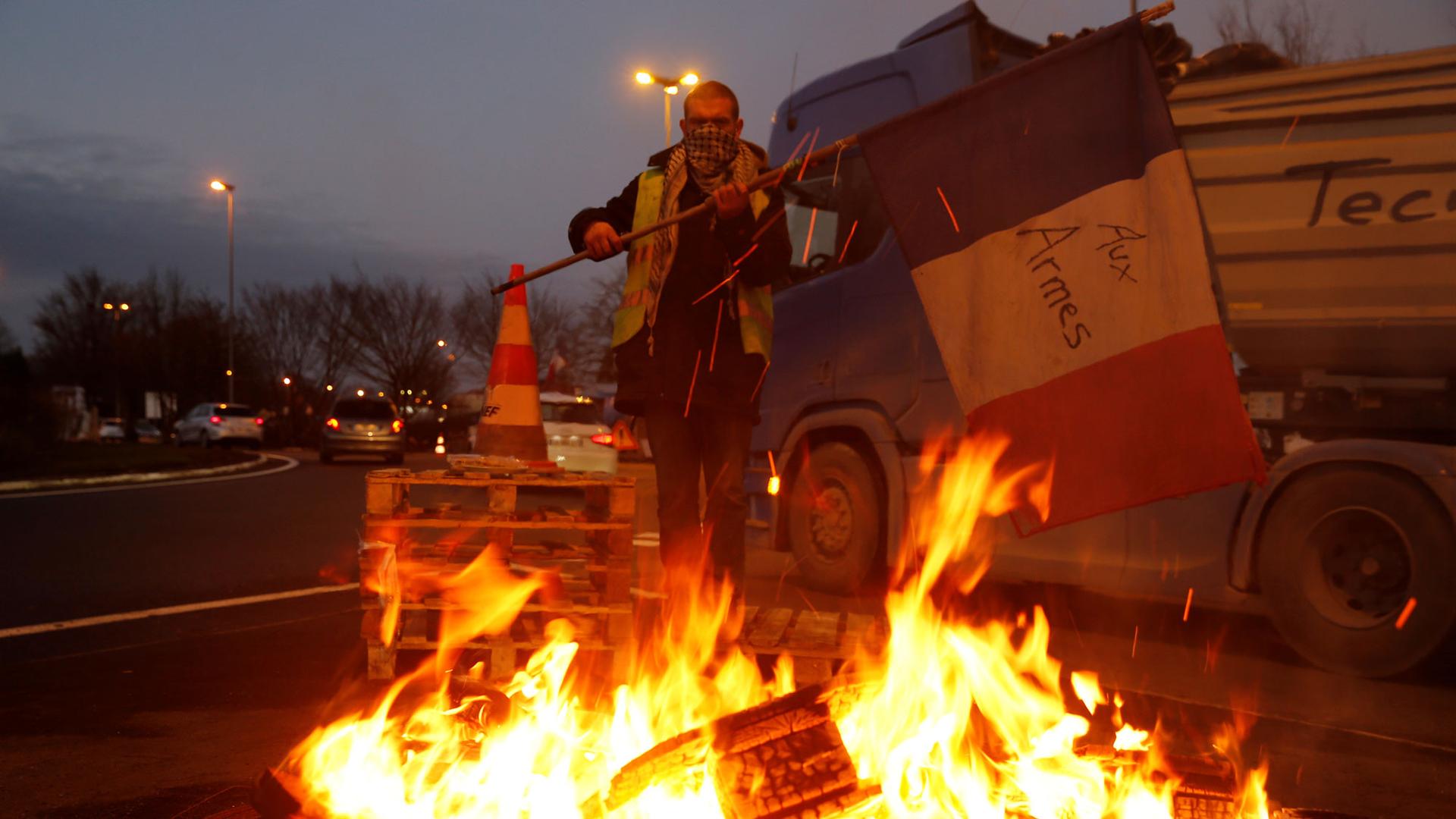France’s Macron makes U-turn on fuel-tax increases in face of ‘yellow vest’ protests
A protester wearing a yellow vest, the symbol of a French drivers’ protest against higher diesel fuel prices, holds a flag near burning debris at the approach to the A2 Paris-Brussels highway, Dec. 4, 2018.
France’s prime minister on Tuesday suspended planned increases to fuel taxes for six months in response to weeks of sometimes violent protests, the first major U-turn by President Emmanuel Macron’s administration after 18 months in office.
In announcing the decision, Prime Minister Edouard Philippe said anyone would have “to be deaf or blind” not to see or hear the anger on the streets over a policy that Macron has defended as critical to combating climate change.
“This anger, you’d have to be deaf or blind not to see it or hear it,” Philippe said in an address.
“The French who have donned yellow vests want taxes to drop, and work to pay. That’s also what we want. If I didn’t manage to explain it, if the ruling majority didn’t manage to convince the French, then something must change.”
As well as a six-month delay in introducing the carbon-tax increases, Philippe said the period would be used to discuss other measures to help the working poor who rely on vehicles to get to work and go to the shops.
Earlier officials had hinted at possible increases to the minimum wage, but Philippe did not make any such commitment.
He warned citizens, however, that they could not expect better public services and to pay lower taxes, and that therefore compromises needed to be made on both sides.
The so-called “yellow vest” protest, which started on Nov. 17 as a social-media protest group named for the high-visibility jackets all motorists in France must have in their cars, has focused on denouncing a squeeze on household spending brought about by Macron’s taxes on fuel.
However, over the past three weeks the protests have evolved into a wider, broadbrush anti-Macron uprising, with many criticizing the president for pursuing policies they say favor the rich and do nothing to help the poor, and some violent fringe groups calling for the president to go.
By Simon Carraud and Luke Baker/Reuters
Reporting by Simon Carraud, Marine Pennetier, Elizabeth Pineau and Richard Lough; Editing by Richard Balmforth.
The story you just read is accessible and free to all because thousands of listeners and readers contribute to our nonprofit newsroom. We go deep to bring you the human-centered international reporting that you know you can trust. To do this work and to do it well, we rely on the support of our listeners. If you appreciated our coverage this year, if there was a story that made you pause or a song that moved you, would you consider making a gift to sustain our work through 2024 and beyond?
